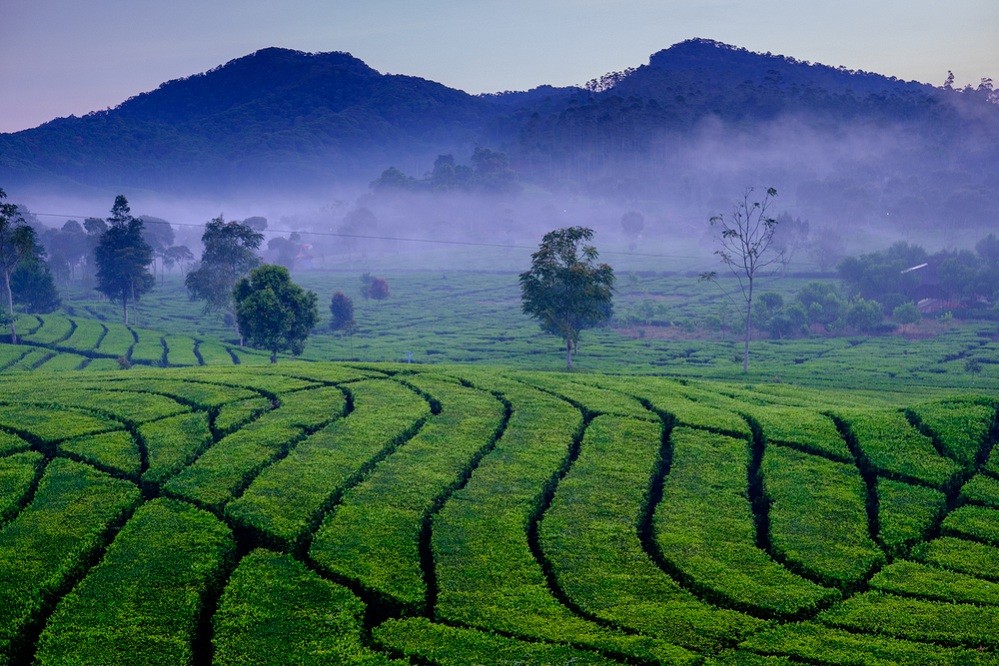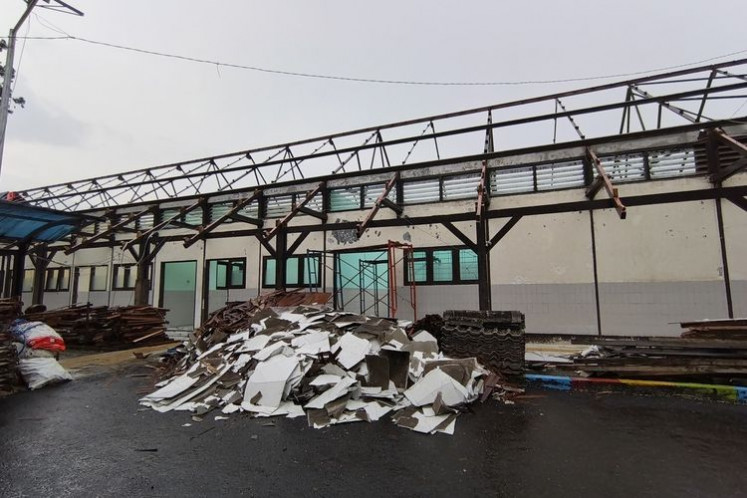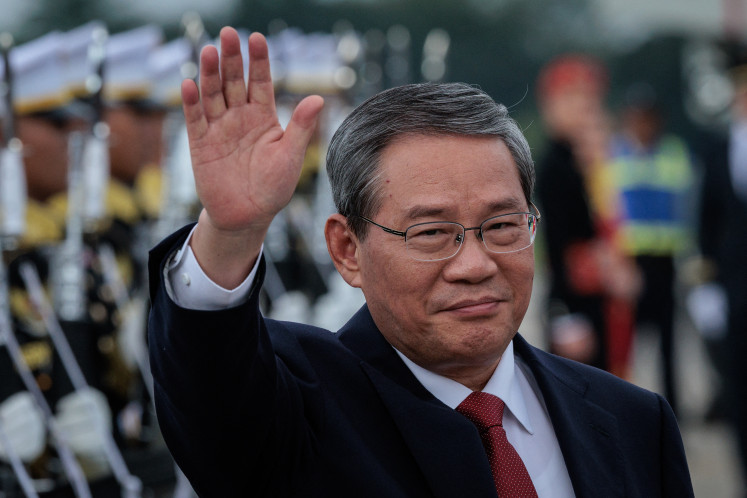West Java invites UK's Finlays on plantation visit to promote unique teas abroad
The West Java governor has stressed that market-oriented ethnography was key to promoting the province's tea products overseas.
Change text size
Gift Premium Articles
to Anyone
 Bright green tea plants grow in orderly rows against a backdrop of misty peaks at a tea plantation in Ciwidey in Bandung regency, West Java. (Shutterstock/File)
Bright green tea plants grow in orderly rows against a backdrop of misty peaks at a tea plantation in Ciwidey in Bandung regency, West Java. (Shutterstock/File)
F
inlay Tea Holdings (Finlays), a multinational company based in London that specializes in tea products, is to visit several tea plantations in West Java later this month to learn about the uniqueness of the province's tea varieties, especially white tea, which has gained popularity overseas.
West Java Governor Ridwan Kamil said last Friday during an event in Bandung that he had invited the company to visit tea plantations in the province during his visit to England in July.
West Java's tea products had yet to attract large foreign buyers because of the lack of marketing among local plantation companies, said Ridwan. He said that marketing through conventional methods was no longer enough to attract foreign buyers.
Tea producers should be innovative and be knowledgeable about the cultures of the countries where they planned to export their products, he said.
“To go global, the tea [producers] must know the culture. Teas for China and England are different. The British said Indonesian teas were not suitable because [they] like to [drink] it with milk,” Ridwan said. “We should be smart. After rebranding [our products], we should study the preferences of people. [This is called] market-oriented ethnography in business.”
Ridwan said that white tea was one of West Java's superior commodities that had attracted attention in the international market. White tea had a niche market because the product was relatively expensive price at US$60 per kilogram, likening it to "a pyramid" with lower sales volume but a higher price.
“That is why I suggested that [businesspeople] should look for a branding consultant so that drinking tea becomes a trend among millennials,” he said.
Ridwan added that the West Java administration planned to open a cafe offering its specialty teas and coffees in Melbourne, Australia.
“I am offering to become a salesperson of the West Java tea industry, because after going to Europe [I know that] the tea trend is growing, but Indonesia has not yet optimized opportunities,” he said.
According to a 2015 report from the United Nations Food and Agriculture Organization (FAO), Indonesia is the seventh-largest tea producer in the world after China, India, Kenya, Sri Lanka, Vietnam and Turkey.
Meanwhile, a 2016 study by the Agriculture Ministry reported that Indonesia produced 139,362 tons of tea annually, to which West Java contributed more than 75 percent in production and exports.
The 2018 West Java Plantation Statistics Book recorded that, of the total area of tea plantations in the province, smallholders owned 44,889 hectares, private companies owned 20,085 hectares, and state-owned plantation companies owned 19,342 hectares.
In 2018, West Java produced 102,319 tons of tea across the regencies of Bogor, Ciamis, Cianjur, Garut, Majalengka, Purwakarta, Subang, Sukabumi,Sumedang, Tasikmalaya and West Bandung.(awa)









